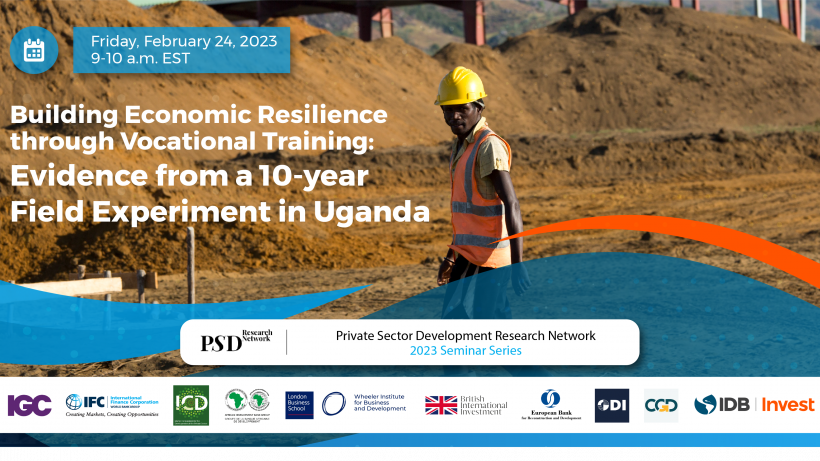
Building economic resilience through vocational training: Evidence from Uganda
This event’s presentation highlights a project which seeks to provide new evidence on the effectiveness of active labour market policies in improving youth labor market outcomes in developing countries and in building economic resilience to shocks, by evaluating the long-term impacts of an intervention targeted to unemployed youth in Uganda.
You can also listen to the audio event recording here:
Youth unemployment and underemployment are key policy challenges in developing countries, especially in sub-Saharan Africa where 60% of the population is below the age of 25. These challenges have become even more pressing since the macroeconomic downturn caused by the Covid-19 pandemic. This event’s presentation highlights a project which seeks to provide new evidence on the effectiveness of active labour market policies in improving youth labour market outcomes in developing countries and in building economic resilience to shocks, by evaluating the long-term impacts of an intervention targeted to unemployed youth in Uganda. The intervention was implemented by the NGO BRAC in 2013 following a randomised control trial design, and included two components: a vocational training component and a job search assistance component. New rounds of follow-up survey data collected through 2022 allow the researchers to document the long-term impacts of vocational training and job search assistance over a period of steady economic growth pre-pandemic, and how these interventions affected resilience to the Covid-19 crisis.



